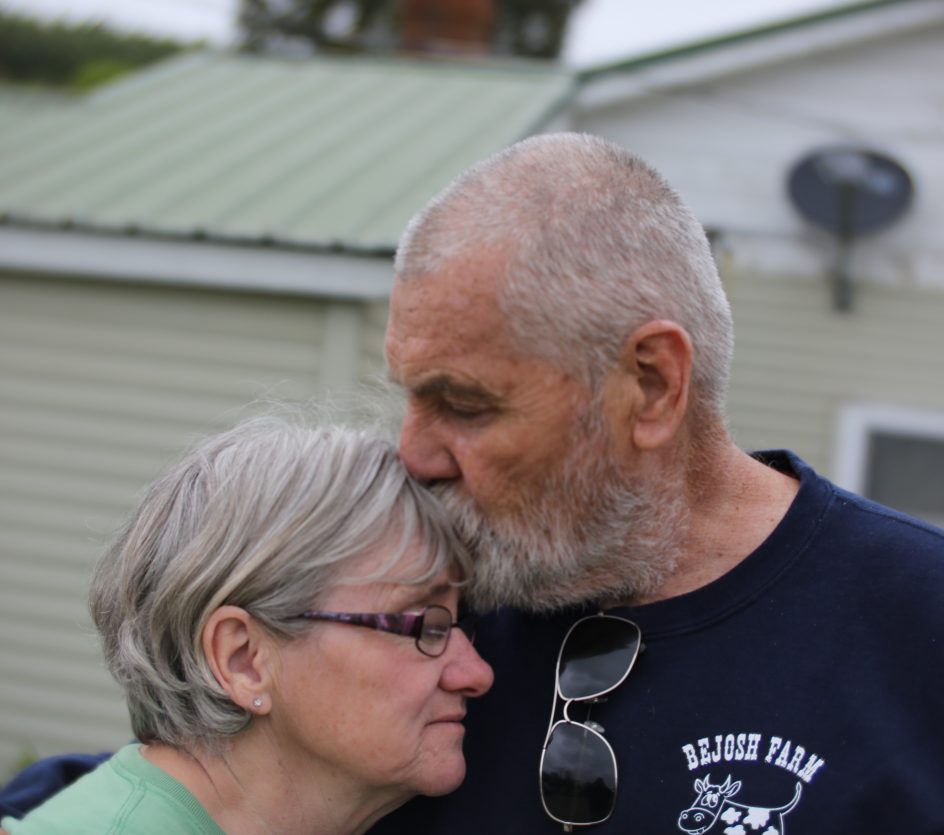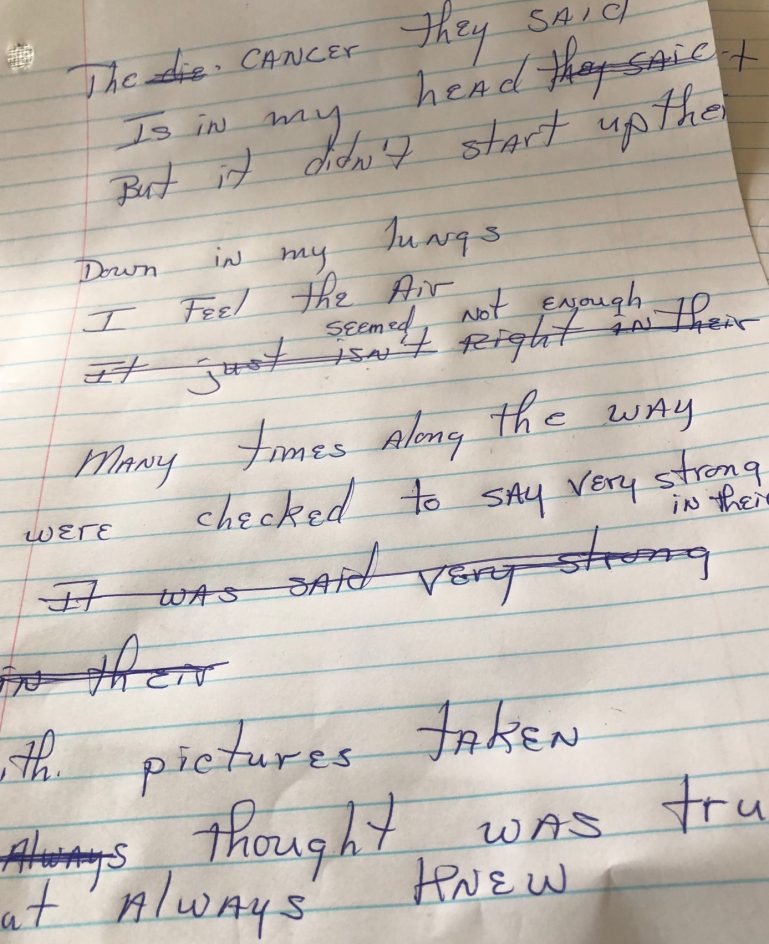
Ed Gulley has turned to poetry, he is having a great conversation with the world about life and death.
I remember that Maria saw the artist in Ed Gulley before I did, but neither of us saw the poet, although I suppose in some ways it’s the same thing.
When I first met Ed, I did not think of him as someone who would sit down and take the time to write poems, or want to. He is a giant of a man who pulls calves out of cows as easily as I take cereal out of the cabinet.
A couple of weeks ago, Ed was diagnosed with terminal brain cancer, and in a day or two, he began writing poems, usually in the middle of the night, scratching them out on computer paper in his favorite space, the couch in the new addition he built last year, his new throne room and headquarters.
Ed does not need a creative writing workshop or graduate degree to write his poems, they are his feelings, right out of his head. Ed and I share one very powerful trait: we have nothing to prove and nothing to protect. We are who we are, and it’s enough. We respect that in one another.
I am not really going to review his poem.
I couldn’t review the work of a close friend, let alone a person suffering from inoperable brain cancer, even if I wanted to. Too close. But I can write about it.
Ed does not need to be patronized or coddled, but what I think is most compelling about the poems he is writing is that he has turned to poetry to communicate with the outside world as he begins to grapple with the import of an illness he believes is terminal.
Ed is writing a very rare kind of chronicle, a journal of life, and perhaps, death. He wants to share it.
Ed is a big, outspoken, calloused, lifelong dairy farmer, I admit to stereotyping him. The only other poet farmer I know is Wendell Berry, who is also an author and he is nothing like Ed Gulley.
We have come to know Ed as an artist, and there is absolutely no reason he should not be a poet, now that he is taking some time to think about his life after decades of long, hard days on the farm. Ed is a creature of nature and the land, and also of family. He is also interactive by nature, he loves messages and letters, and feeds off of them.
To me, what is most relevant is that the poet inside of him – inside of all of us – is beginning to come out to join the artist inside of him. Ed the artist has spent considerable time the last few years making sculptures out of farm implements that people all over the country are buying. Check out his very popular Bejosh Farm Journal, which he also started last year with his wife Carol.
I’m beginning to think Ed is a prophet, he is seeing spirits everywhere and talk about ghosts and specters, and I don’t think it is the illness speaking, although that was surely a trigger. A few centuries ago he would almost surely be a mystic, a good candidate for being burned at the stake or drowned. When he first told me he was seeing spirits on the road, I assumed that was his brain disorder speaking, but I no longer think that is the case.
He is seeing something.

“My spirit floats across the room,” he wrote in his new poem, “Thank You,”
“Special tasks to do.
Raging Bull’s eyes
He is almost done…
Tweak those horns.”
I see that Ed here is speaking of the work he wants to do to finish his giant Bull sculpture, his great work, while he can.
He stopped working on his art (and the farm) because he thought it might endanger him, he sees that this is not the case is returning to his work, to the farm on a smaller scale, to his art to finish some of his important pieces. He might also do some haying, he says, he misses riding in the tractor.
“A special time!,” he writes
“These things I do,
Made with love,
for all beautiful spirits,
out there..”
Stream of consciousness, one thought stitched together with another.
So Ed has begun a dialogue with the outside world, something he never thought to do, or had time to do. For now, poetry is his medium.
He is using the creative spark to come to terms with his life, or possibly, the end of his life. A rare thing for a dairy farmer to do, I think. A rare thing for anybody to do.
I can’t say if these poems are good or not, or literary or not, I don’t know. I thought of the spiritual writer Richard Rohr when I read them, someone sent this quote of his to me recently, it is curiously timely:
“If you inner imaginarium is rich, intelligent, and not overly defended, you will never stop growing spiritually. The artist is a prophet, someone who helps us be self-critical and creative so we don’t stay stuck in the status quo. The prophet models and embodies a new way of thinking and being that allows us to imagine a larger, more inclusive way to live.”
In a way, I believe there really no good or bad writing, only our writing, true to each of us. The thinkers and the gatekeepers like to say who should be allowed in, but Ed isn’t asking permission to think.
I am listening as Ed begins his great spiritual journey, his dialogue with he world. He is talking to the fates, the angels, the spirits who rule the world. I’m not sure always what he is saying, his poetry, unschooled and impulsive, can be difficult. But I believe it is important.
Rohr also wrote that we do not think ourselves into new ways of living, we live ourselves into new ways of thinking.
Ed means to do a lot of living now.
